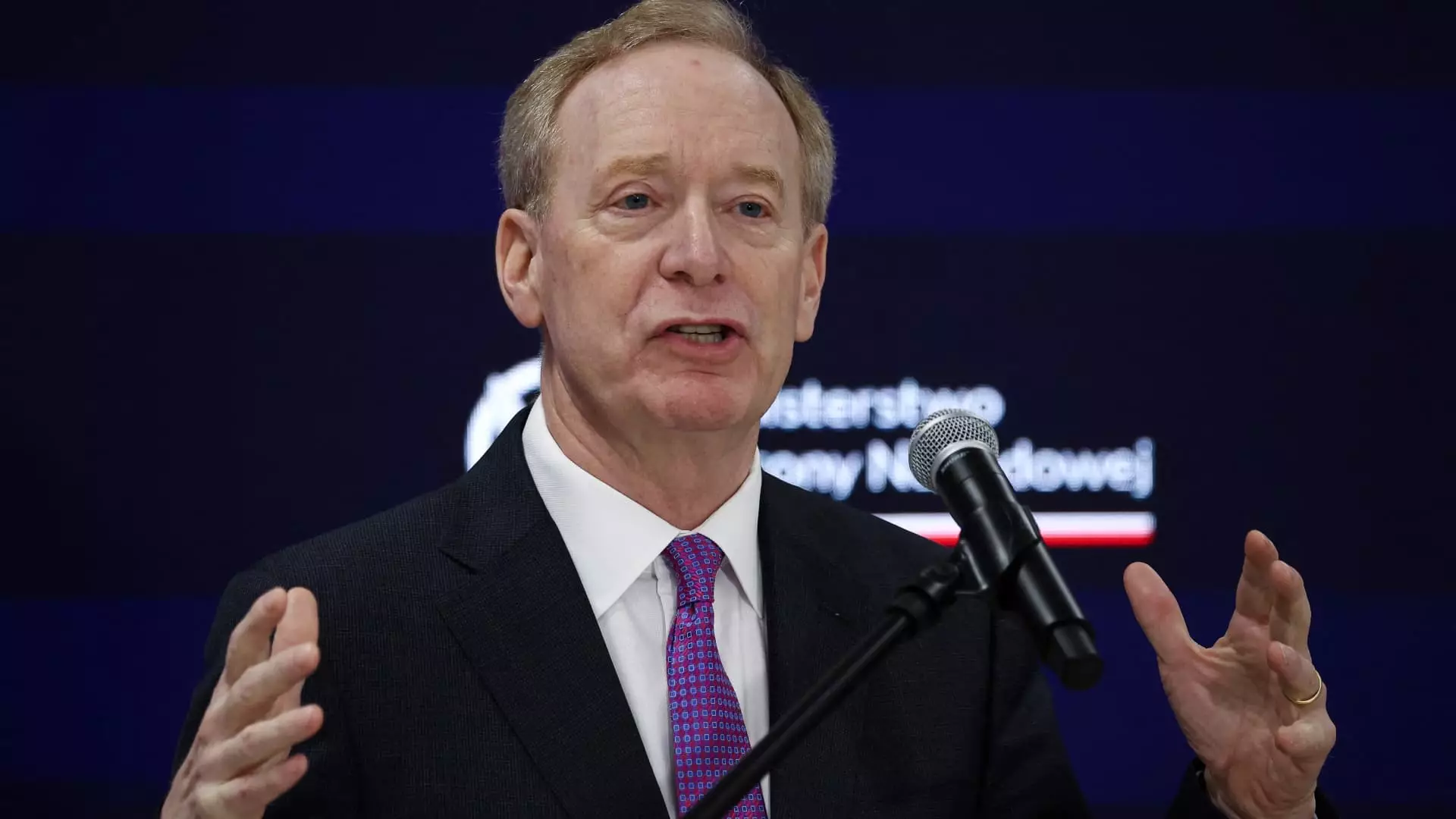The recent remarks made by Microsoft President Brad Smith unveil an intriguing shift in the tech-giant’s approach toward European regulations. In a digital landscape characterized by rapid growth and ambiguity, Microsoft is asserting its commitment to compliance with European laws, even amidst evident disagreements. This declaration is more than just a corporate PR maneuver; it underscores a deep-seated recognition of the complex interplay between technology and regulatory frameworks, especially in the high-stakes cultural and economic environment of Europe.
Smith emphasized that while Microsoft may not always align with every dictate from European authorities, it remains steadfast in its resolve to respect and comply with local laws. This is particularly crucial given the increasing scrutiny that American tech firms face from European regulators, who seek to curtail monopolistic behaviors and protect consumer rights. The firm’s proactive compliance posture could signal a recalibration of relationships between US tech giants and international regulatory bodies, particularly as tensions heighten due to trade wars and tariff threats.
The Digital Markets Act: A Regulatory Milestone
One cannot discuss Microsoft’s compliance without mentioning the European Union’s Digital Markets Act (DMA). This groundbreaking legislation aims to contain the market dominance of what the EU labels as “gatekeepers” — primarily giants like Microsoft, Google, and Apple. The DMA signifies the EU’s commitment to fostering competition and innovation by enforcing standards that limit the overwhelming power these companies wield.
In light of the recent fines levied against Apple and Meta for violating the DMA, Smith’s insistence on complying with European laws takes on a new level of importance. The heavy penalties illustrate the EU’s serious approach to regulation, arguably engendering an environment where tech firms must operate under stringent guidelines if they wish to maintain their foothold in European markets. The call for compliance can thus be seen not just as a corporate strategy but as a necessity for survival in Europe’s competitive technological landscape.
Strategic Implications for Global Business
Smith’s comments are part of a broader strategy aimed at harmonizing business practices across jurisdictions. The geopolitical landscape, in which trade wars and regulatory crackdowns are rampant, demands that companies adopt a nuanced understanding of the global marketplace. For Microsoft, adhering to European laws not only enhances its reputation but also serves as a strategic move to buffer against potential repercussions from escalating tariffs imposed by the U.S. government on European goods and services.
This newfound emphasis on compliance can help soften the impact of international backlash against American firms. With leaders like Smith vocalizing this commitment, Microsoft could emerge as a model for how tech firms navigate regulatory frameworks across different markets. In a world increasingly fraught with political tension, showing a willingness to play by the rules of the land can be a powerful differentiator.
Future Challenges and Market Dynamics
However, this charm offensive may not be devoid of challenges. As Microsoft works to bolster ties with European regulators, it risks encountering an unpredictable political environment fueled by ongoing trade disputes. U.S. President Donald Trump’s antagonistic stance toward EU regulations could further complicate relations, potentially mobilizing European authorities to impose even greater restrictions on American companies.
Smith’s reassurances come against the backdrop of a marketplace rapidly evolving due to technological advancements and shifting consumer expectations. The challenge for Microsoft and its peers will be to innovate while adhering to increasingly complex and diverse regulations — a task that necessitates agility and foresight. With competition robust from both local firms and other international entities, the stakes are higher than ever.
Microsoft’s dedication to respecting European laws reflects a significant strategic pivot. By embracing compliance and positioning itself as a cooperative entity, the company signals its long-term commitment not only to growth but also to ethical business practices. As it navigates these turbulent waters, its journey may well define the future of multinational operations in a world where the line between technology and policy is becoming ever blurrier.

